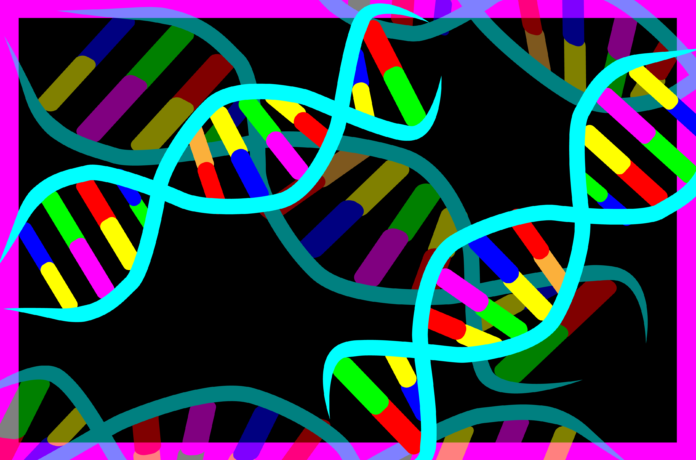UC Davis faculty discuss the possibilities of epigenetics and the capacity to alter one’s rate of aging
This article is the third installation of The California Aggie’s Mind and Body series which discusses nutrition, physical wellbeing and mental health.
Age 25 has been pegged as one of the most pivotal points during one’s aging process as it is the starting point for collagen breakdown and slower cell division.
Robert Hackman, a research nutritionist at UC Davis, clarified these claims of aging and cell division. He emphasized that once one reaches their mid-twenties and early thirties, the cell division process will slow down but never stops.
“The rate of cell division slows down,” Hackman said. “[But] cell division is happening throughout your life.”
Reduced cell division is a normal process and is responsible for making us more prone to fat production and muscle retention. As people age, the burning of calories and fat loss ultimately becomes more difficult as their metabolism slows.
“Our metabolic rate, the amount of calories we’re burning, whether it be while we’re sleeping or during our daily physical activity, those generally slow down after or around the age of 30,” Hackman said. “They can be mitigated, to some degree, by regular, lifelong physical activity.”
Though a slower metabolism can be alleviated with exercise, Hackman mentioned that it becomes increasingly difficult to maintain muscle mass while simultaneously keeping body fat down. After one’s mid-twenties, a healthy diet and exercise can aid in slowing the rate of decline within one’s body, but this process is inevitable and cannot be halted.
Recently, however, the term epigenetics has gained popularity online for claims that one’s lifestyle has the ability to dictate certain aspects of aging over genetic predispositions. Hackman explained that although studies on the subject have been limited, promoting healthy habits can influence the way one’s genes are read and possibly impact aging in the future.
“Epigenetics has to do with whether your lifestyle can alter your genetic code, your genetic predisposition,” Hackman said. “You can’t alter your DNA, but the DNA gets interpreted or read by the RNA. The RNA then is the code that tells the cells how to reproduce and what proteins to make. In that translation from the RNA to the cell, a healthy dietary pattern and healthy lifestyle can certainly increase one’s chances.”
Hackman emphasized that there are no clear answers in the study of epigenetics, but that professionals do know that a healthy lifestyle with no smoking can have positive long-term impacts on one’s health.
A caveat, however, is that some genetic predispositions are too “well programmed” to be solely pivoted by diet and exercise. He offered the examples of cholesterol and heart disease as possibly being genetically predisposed in one’s body. Thus, pharmaceuticals, according to Hackman, are the most effective way of controlling their impacts.
Dr. Joseph Shen, an associate professor of clinical genetics for UC Davis Health, also noted the possibilities and constraints within the study of epigenetics. Shen specializes in the study of single-gene disorders and mutations among genes. He stated that geneticists have been able to investigate and draw conclusions from genetic disorders like sickle cell disease or cystic fibrosis, yet have difficulties toward observing genetic traits like diabetes, ability to lose or gain weight and athleticism.
“We are nowhere near as knowledgeable about the latter compared to the former form of genetics, just because of the interrelationships and complexities of gene-gene interactions within the human body when you are dealing with thousands of genes at a time,” Shen said.
Ultimately, according to Shen, the genetics are too complex to make definitive claims about altering the way one’s genetics are read; people may be born with certain genetic codes that may be too entrenched to override with lifestyle changes.
“We control what we can control,” Shen said. “As an example, there may be a genetic predisposition to earlier heart attacks [or] higher cholesterol based on what we know about a person’s relatives and their history of medical issues. You cannot control that.”
Despite continuous research toward more conclusive results, both Shen and Hackman state that exercise and healthy diets may have the capacity to reduce the restrictions of certain genetic codes.
Hackman further explained that people should also attempt to avoid inflammatory, processed foods which may be the cause of some chronic diseases. For skin preservation, he recommends a plant-based Mediterranean diet that is filled with dark green, yellow and orange vegetables.
These lifestyle changes contribute to short term payoffs which Hackman stated correlate to the reduction of long-term risks.
“This will help you sleep better at night,” Hackman said. “This will help you with your mental focus, so you can do school better. This will help you feel light so that you can do exercise and recover more quickly.”
Written by: Farrah Ballou — features@theaggie.org




